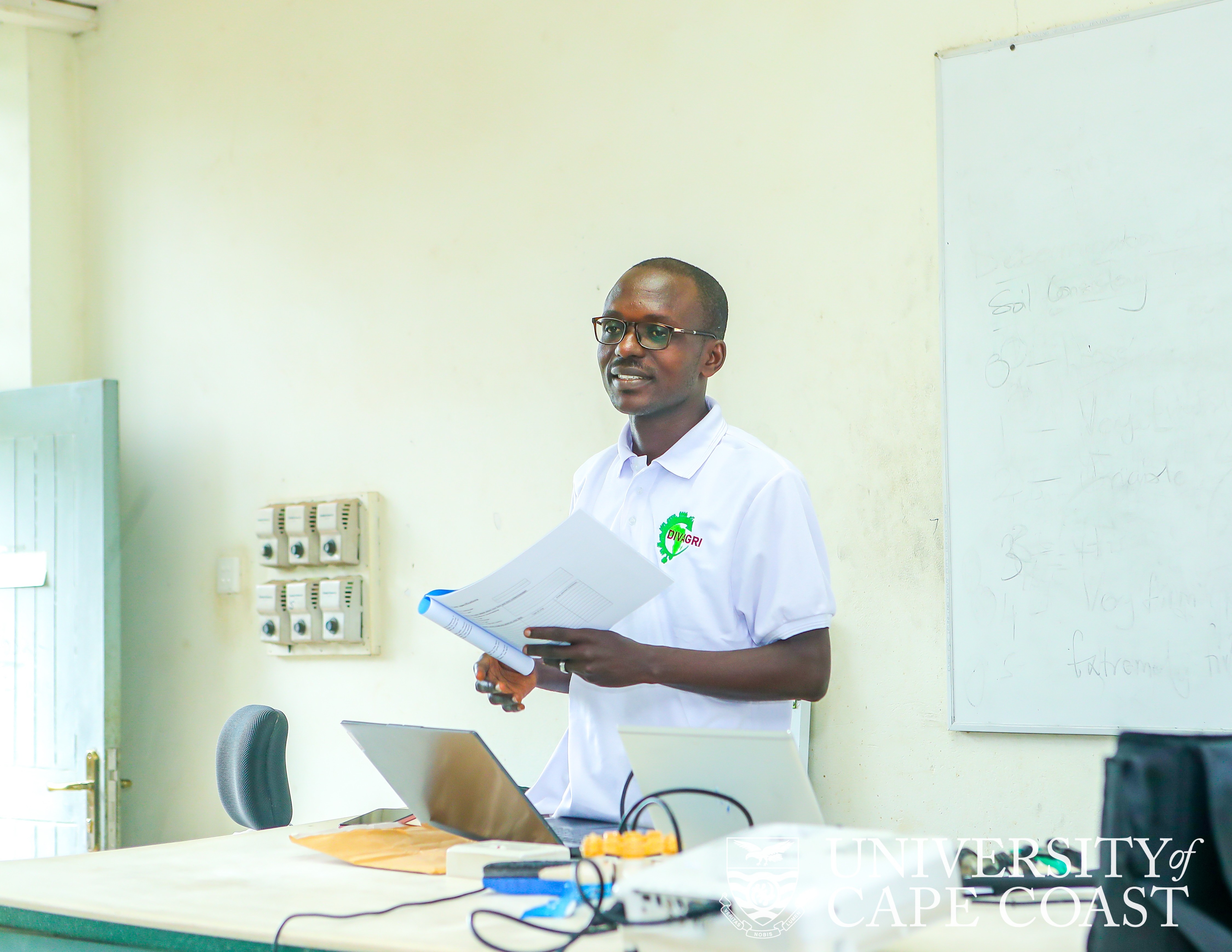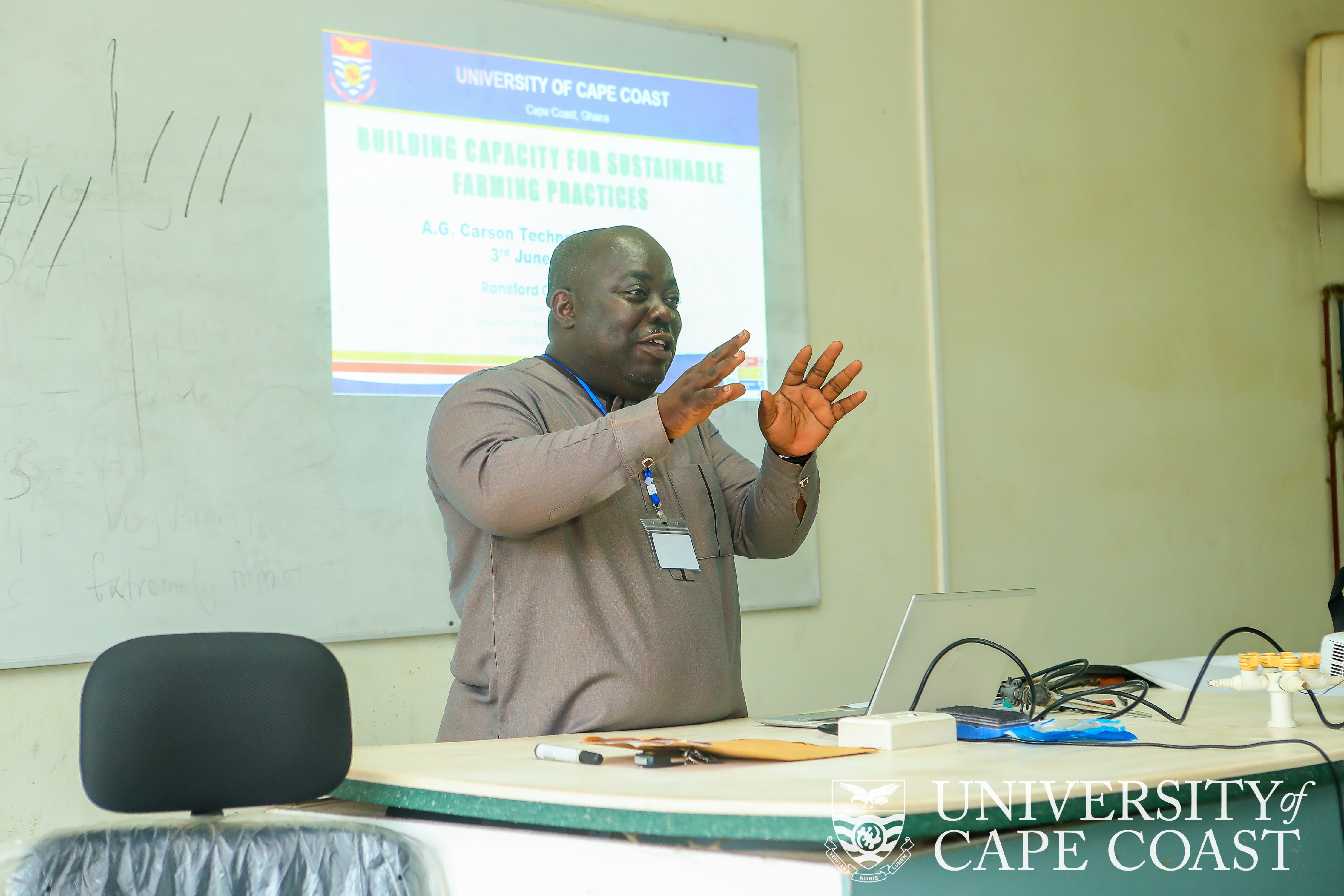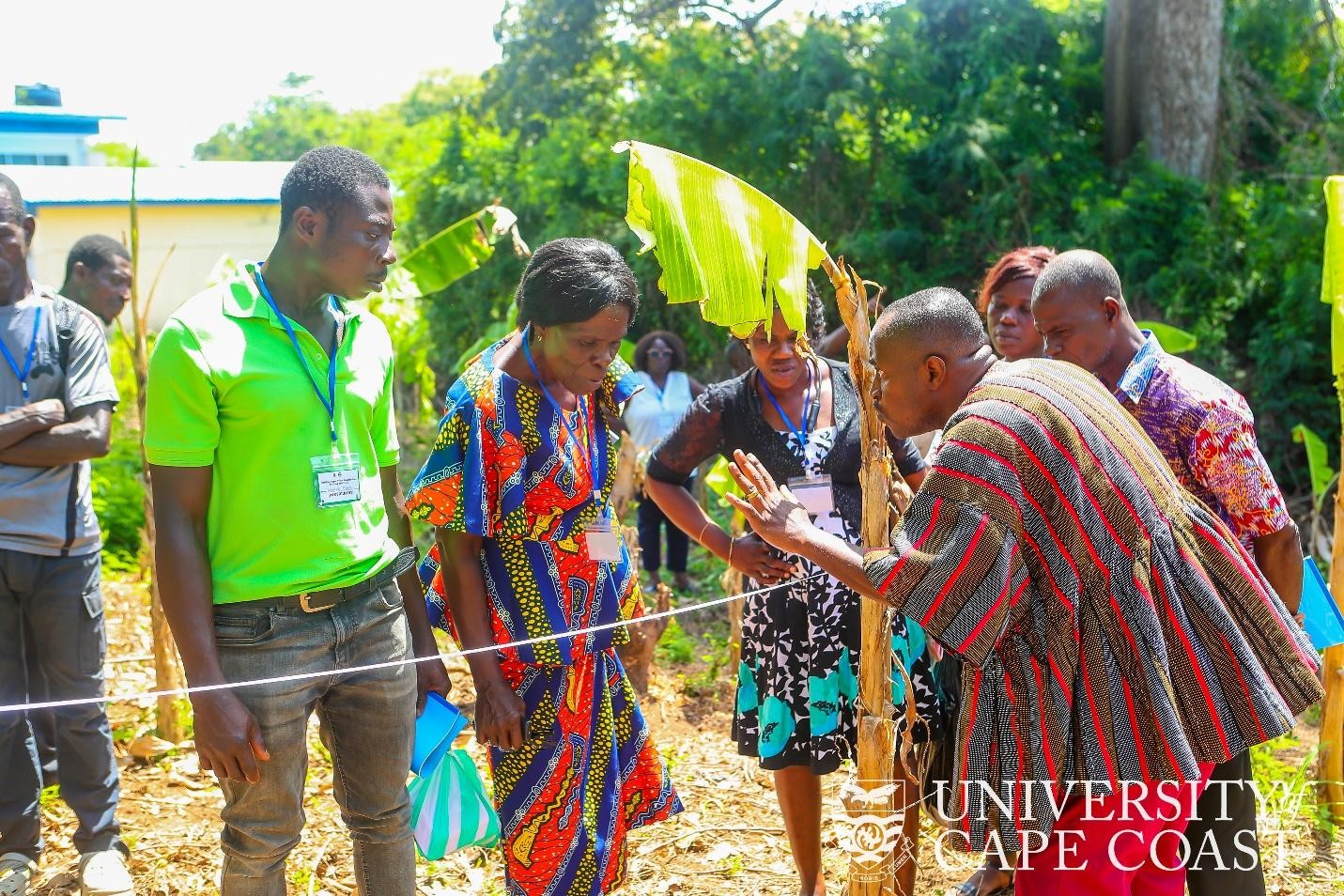Farmers from Komenda-Edina-Eguafo-Abrem (KEEA) Municipality have received training on sustainable farming practices driven by technology and data to address the dwindling of arable land.
The awareness created for these farmers would strengthen their capacities, improve livelihoods, and add value to the food they produce.
The farmers were taken through farm business records keeping, techniques for sustainable irrigation, and intercropping.
The programme is part of a four-year project on "Revenue Diversification Pathways in Africa through Bio-based and Circular Agricultural Innovations (DIVAGRI)” which was launched in 2021 with funding from the European Union.
The project aims at increasing productivity, exploring more income streams, and economic opportunities of subsistence and smallholder farmers in Sub-Saharan Africa to implement state-of-the-art bio-based innovation.
Dr. Francis Kumi speaking at the event
A Senior Lecturer at the Department of Agricultural and Mechanical Engineering at UCC, Dr. Francis Kumi, explained that accurate record-keeping was fundamental to good farm management.
According to him, when farmers had comprehensive records, they could monitor all the inputs and outputs of their farm, which helps farmers to keep track of the costs and assess their productivity.
“For example, you’ll know exactly when you last fertilised your fields or how much water your crops received. This information helps you make better decisions about when to irrigate. Accurate records also prevent you from wasting resources, saving you money and improving your farm’s efficiency,” he said.
Dr. Kumi expressed worry about how farmers bitterly complain about their inability to make profits from farm produce and urged them to take advantage of farm record-keeping books to maximise profits.
“Most farmers don’t keep records, and they keep complaining that they don’t make profit. So, we have introduced the farm business records book to them so they can use it to keep records. I am hopeful it will enhance their output and productivity,” he said.
For his part, Prof. Ransford Opoku Darko from the Department of Agricultural Engineering, UCC, indicated that irrigation had been identified as one of the key technologies that could boost food security in the face of declining agricultural lands.
Prof. Ransford Opoku Darko explaining a point to the participants
He said it offers farmers the opportunity to farm throughout the year, increase income, and improve their livelihood.
Prof. Darko urged farmers to patronize technology to contribute to food production and ensure food security, especially in a period where the rainfall pattern had changed.
A Senior Lecturer at the Department of Crop Science, Dr. Kwadwo Kusi Amoah, in a remark, also entreated farmers across the country to prioritize intercropping.
“Instead of growing only maize, you can do maize and cowpea, and pawpaw on the same piece of land,” he added.
According to him, some of the crops were interconnected and drew nutrients from each other. This, according to him, was the surest way for farmers diversifying their land to break even.
Participants in the workshop at a demonstration site
A farmer from KEEA, Mr. Jacob Asamah, said that when he received the knowledge of these practices, farming had become easier. He further pointed out that the practices they had been introduced to were necessary interventions farmers should embrace.
As part of the event, the farmers were taken to a demonstration site to be abreast of farm business records keeping, techniques for sustainable irrigation, and intercropping.
The Dean of the School of Agriculture, Prof. Henry De-Graft Acquah, chaired the workshop.
Certificates were presented to participants.
Source: Documentation and Information Section-UCC




